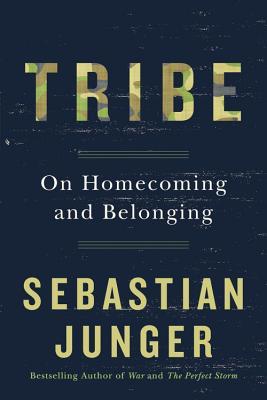On Group Feeling and Group Conflict
As part of my general sociological research on the Crisis Era and the recent pandemic, I have been studying the topic of ingroup solidarity and outgroup aggression. Essentially, this is the social theory of group identification and the idea that people are more likely to support those whom they perceive as belonging to their group and to be hostile to those whom they perceive as being outside of their group.
I’ve browsed some academic works, which typically define the ingroup and outgroup in either nationalistic or ethnic terms. The studies find support for the hypothesis (idea) above, with interesting twists. For example, level of support can be affected by perceptions of status difference and whether one’s own group’s status (privilege) is threatened, or whether an outgroup is perceived to be particular hostile to one’s ingroup. Both of these perceptions will lead to increased hostility towards an outgroup. With each of two groups perceiving the other in this way, they can get caught up in a vicious cycle of mutual hostility, certainly a recognizable phenomenon in many of the conflicts in our world.
Two groups caught up in such a vicious cycle may well be the political parties in the United States today. The degree of partisanship and rancor between the two factions has become legendary. I’ve been blogging about it for a long while now, and recently speculated that we have social media bubbles to sustain “group feeling”, in the words of Ibn Khaldun. To put it differently, social media bubbles serve to maintain ingroup solidarity, and sometimes even to encourage outgroup aggression.
I found this one fascinating paper which speculated that Trump’s election victory in 2016 might well have been because of greater group solidarity among Republicans than among Democrats. The resisters like to mock the MAGAs for acting like they are in a cult, but really MAGAs are just exhibiting stronger group feeling. This will only help them in the ongoing conflict. Link to the research paper follows.
Another source I studied as part of this little project is the book Tribe by Sebastian Unger. In this brief work, the author argues that one reason for so much anxiety and depression in modern life is that we are removed from our evolutionary past, in which we lived in small, cohesive groups (tribes). In other words, by nature, we have a deep need to experience group feeling. In times of war and disaster, this atavistic experience returns. And though no one wants to be in a war or disaster per se, those who do, such as veterans with PTSD, often report that they miss the feeling of solidarity they had with their group while they were in the midst of hardship and danger.
An interesting tidbit that I got out of Junger’s book is that personalities who tend towards aggression, while not well adapted for ordinary life in peaceful times, become an invaluable asset when survival is at stake, such as during wars and disasters. This is hardly surprising to learn; I only mention it in the context of the previous discussion of ingroup solidarity and outgroup aggression. To whatever extent people in one group (say, a political faction) feel that their status (privilege) is threatened or that they are targets for another group (faction), then aggression will be seen as a valuable survival trait.
I don’t want to end this post on such an ominous note, so I’ll also mention that in the research papers I looked at there was evidence for factors that mediate against hostility between groups. One, believe it or not, was simply persuasion. So maybe your social media posts aren’t all just shouting into an echo chamber. Another is the perception of a shared common fate with outgroups, or a sense of belonging to the ultimate group, “all of humanity.” If these factors can be encouraged, maybe there is hope for us after all.
For those who are interested, I’ve put links to the research papers below.
- https://www.researchgate.net/publication/230029289_On_helping_lower_status_out-groups_The_nature_of_the_help_and_the_stability_of_the_intergroup_status_hierarchy
- https://www.researchgate.net/publication/286780003_They_See_Us_As_Less_Than_Human_Meta-Dehumanization_Predicts_Intergroup_Conflict_Via_Reciprocal_Dehumanization
- https://www.researchgate.net/publication/353188575_Ethnic_Outgroup_Aggression_A_Pilot_Study_on_the_Importance_of_Emotion_Regulation_Nationalism_and_Susceptibility_to_Persuasion
- https://www.researchgate.net/publication/352484888_Prosociality_during_COVID-19_Globally_focussed_solidarity_brings_greater_benefits_than_nationally_focussed_solidarity
